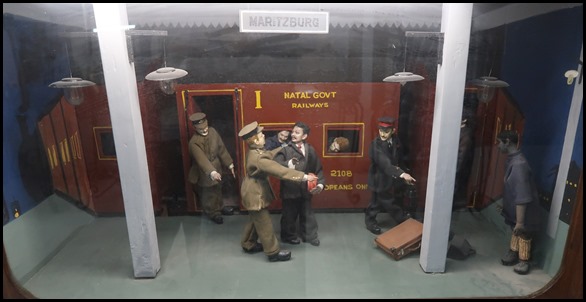Gandhi Museum Dioramas

Beez Neez now Chy Whella
Big Bear and Pepe Millard
Thu 11 Apr 2019 22:47
|
Dioramas in the Gandhi Museum
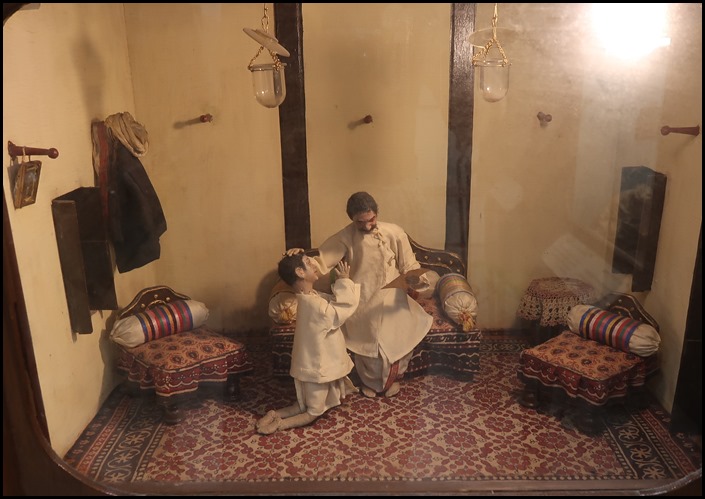 There was a room in the
Gandhi Museum dedicated to a collection of small dioramas which give ‘a potted
life of Mohandas Karamchand Gandhi’. Shame about the glare on the glass of some
of them.
Stealing and Atonement:
Once Mohan stole a bit of gold, but it weighed heavily on his conscience. He
made a confession to his father and asked for
punishment. Sincere repentance won Mohan his father’s
affection.
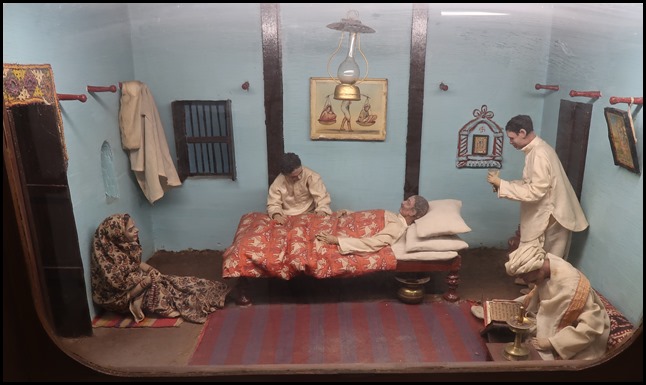 Nursing his ailing Father: During five long years of his
father’s illness, Mohan nursed him and listened to discussion on different
faiths.
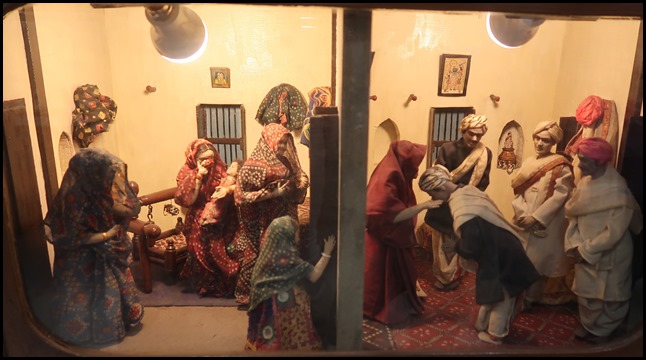 Seeking Mother’s
Permission to go Abroad. 1888: Mohan’s mother consented to his going to England
for further studies only after he took a vow not to touch wine, women and
meat.
Victim of Colour-Bar,
1893: On a complaint by a white passenger M.K.Gandhi, Barrister At-Law was
thrown out of the first class railway compartment at Maritzburg in South Africa.
This incident changed the course of his life.
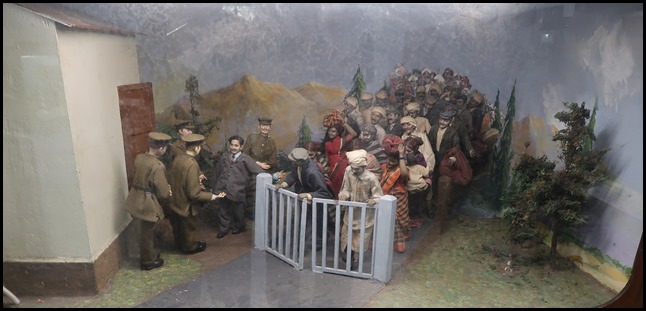 The Epic March, 1913:
Hundreds of Indians marched from New Castle to Transvaal as a protest against £3
tax. Their leader Gandhi was arrested three times in four days but they
continued to march.
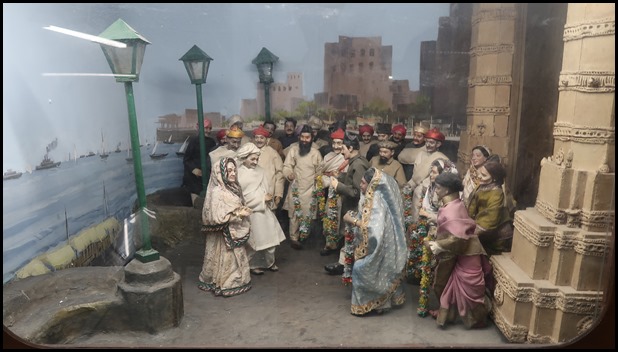 Arrival of Gandhi in
India, 1915: On their return from South Africa after 21 years Gandhi and
Kasturbai were given a warm reception.
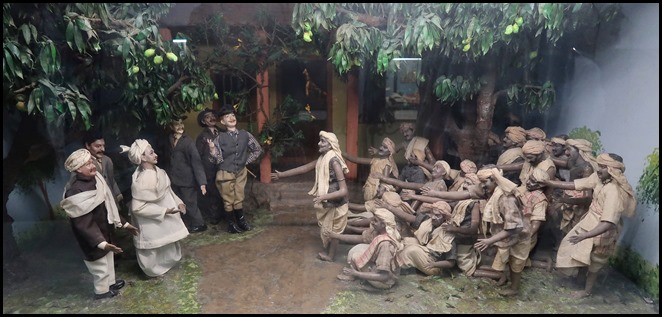 Stain of Indigo, 1917:
Gandhi espoused the cause of the oppressed peasants on the Indigo Plantation in
Birhar and launched his first civil disobedience movement in India. The
compulsory growing of indigo was abolished.
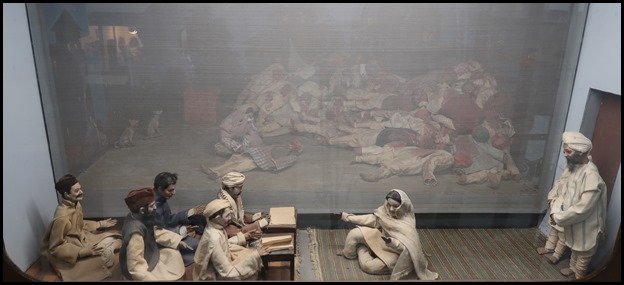 The Jallianwala Bagh
Massacre, 1919: Gandhi investigated into atrocities committed by General Dyer on
a peaceful gathering at Amritsar, killing 375 and injuring 1000 and more unarmed
unwarned people.
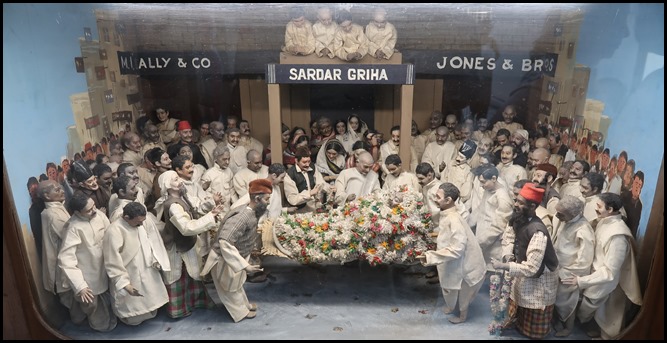 Death of Lokmanya Tilak,
1920: All classes and communities of people participated in the funeral
procession of Bal Gangadhar Tilak in Bombay. Gandhi said “A lion among men has
died”..
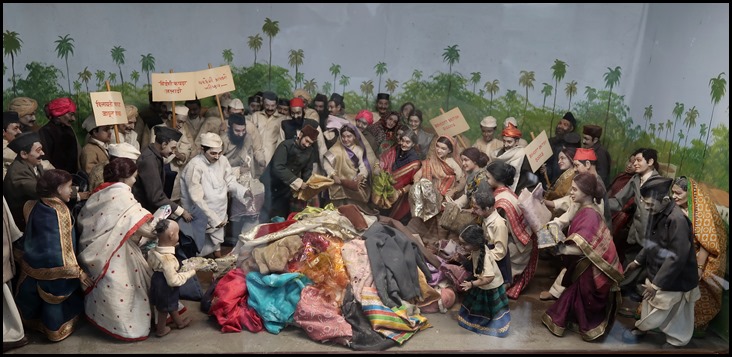 Bonfire of Foreign
Cloth, 1922: Gandhi inaugurated the campaign for the boycott of foreign cloth by
kindling an immense fire in Bombay for the economic emancipation of
India.
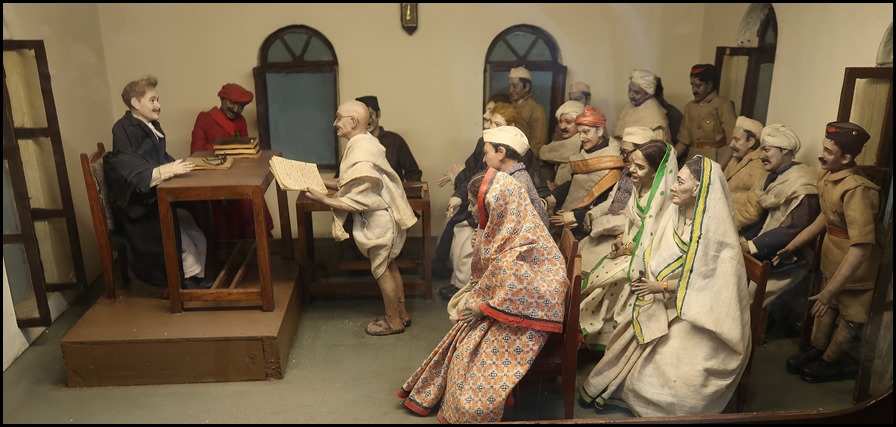 The Great Trial, 1922: Gandhi was
tried for sedition in March. Pleading guilty he said, “I hold it to be a virtue
to be disaffected towards a government which has done more harm to India than
any previous system”. He was sentenced to six years imprisonment.
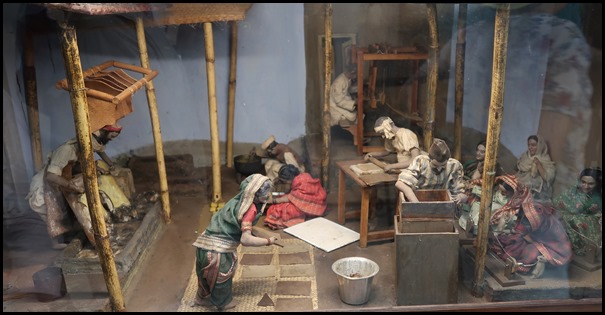 Village
Industries, 1929: The inhuman destruction of village industries was corroding
Gandhi’s heart. He believed that their restoration alone would feed the hungry
millions.
 The Dandi
March, 1930: On March 12, sixty one year old Gandhi started the Great March of
Liberty from Sabarmati Ashram with a strong resolve to break the inhuman Salt
Law.
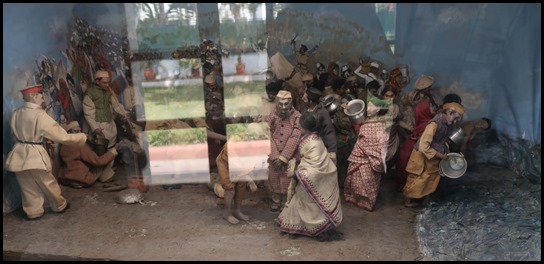 The Salt
Satyagraha, 1930: On April 6, Gandhi broke the nefarious Salt Law at Dandi.
Despite brutal assaults on the people the war against the Salt Tax spread to
far-flung regions. India was seething in revolt, Gandhi was
arrested.
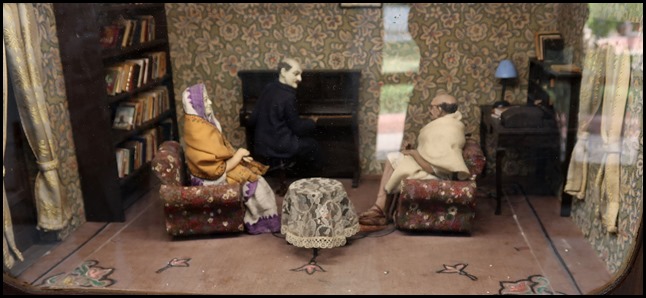 With Romain Rolland, 1931: Gandhi discussed with Romain
Rolland at Geneva the evil effects of war and the efficacy of non-violence. At
Gandhi’s request, Rolland played Beethoven’s Fifth Symphony on the piano.
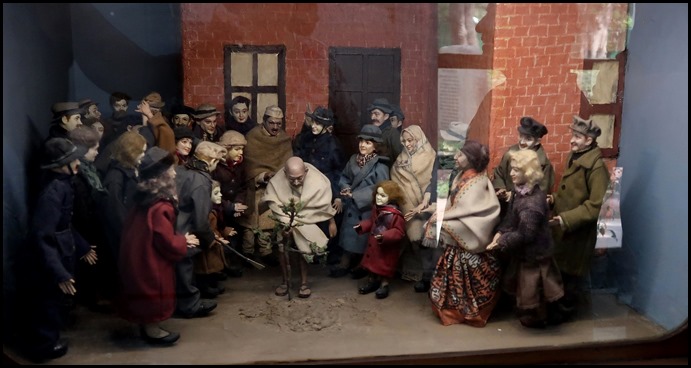 Among the
Workers, London 1931: Gandhi planted a tree outside Kinglsey Hall, East End,
where he stayed with the workers for twelve weeks.
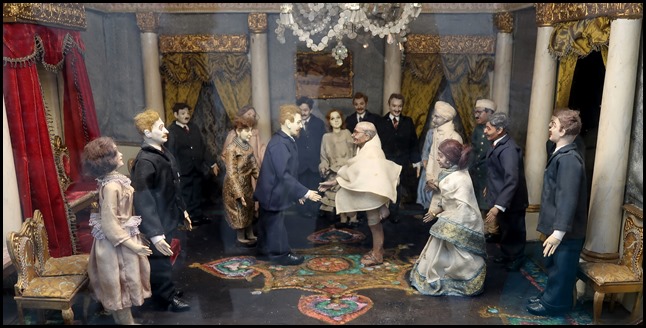 Meeting the
King in London, 1931: Gandhi went to London to attend the Round Table
Conference. On being invited by the King, he went to Buckingham Palace in his
usual dress.
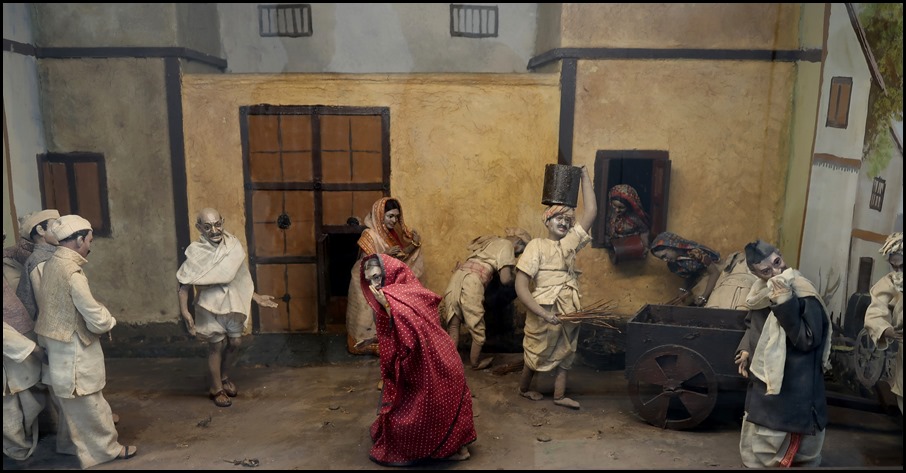 The Curse of
Untouchability: Gandhi pleaded for the uplift of the downtrodden untouchables
and for restoring equality between man and man.
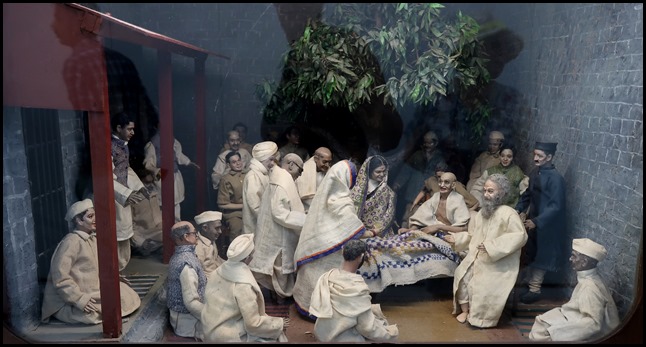 Fast for the
Eradication of Untouchability, 1932: Gandhi was arrested on his return from
England. On September 20, he commenced his fast unto death in the prison for
eradicating untouchability, on the leaders signing a pact, the fast was broken
after six days.
(Untouchables were hired to do work that members of the caste system would not do. These jobs included killing or disposing of dead cattle or working with their hides. The untouchables also worked as sweepers, washers, or in other jobs that required contact with human emissions such as sweat, urine, or faeces). 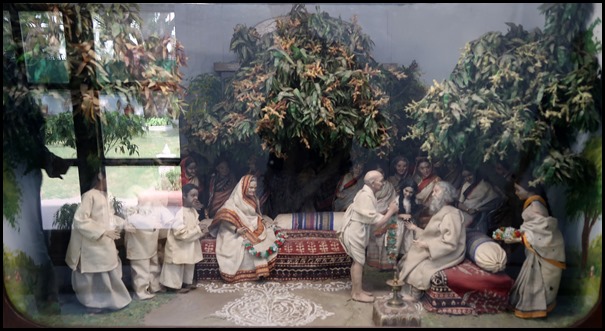 With Poet Tagore, 1940: The two apostles of India’s
regeneration Gandhi and Tagore met at Shantiniketan. The poet welcomed Gandhi as
one belonging to all humanity.
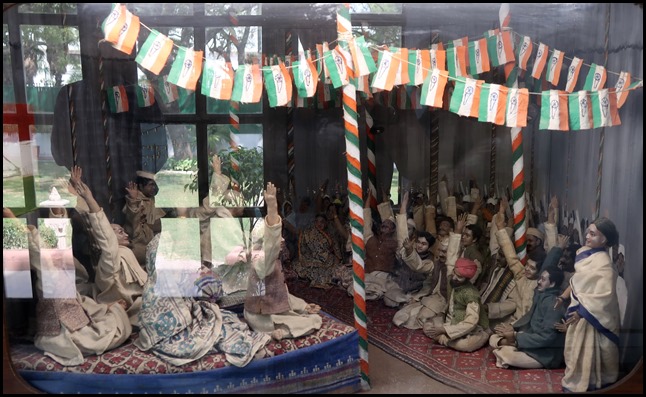 Quit India,
1942: On the AICC passing the ‘Quit India’ resolution on August 8 to end the
British rule, Gandhi gave a dictum for the non-violent soldier of freedom ‘Do or
Die’, on Gandhi’s detention, India’s national pride rose in revolt.
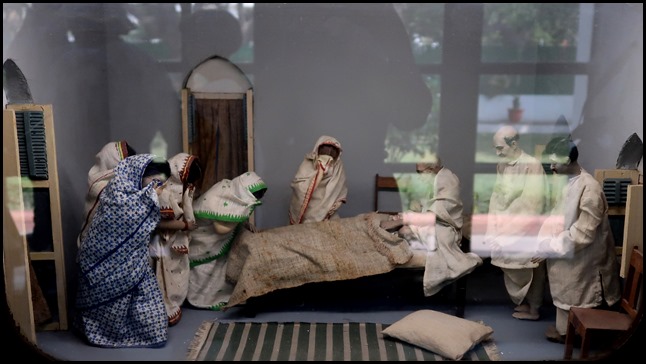 Death of Kasturba, 1944: Gandhi’s 74 year old wife
Kasturba died as a prisoner on February 22. Thus ended their 62 year old
companionship.
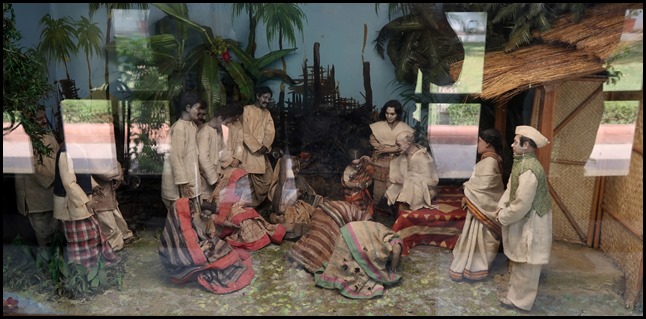 Pilgrim of Peace, 1946
– 47: Gandhi went on his pilgrimage of peace in riot-wrecked Bengal to establish
unity between the two sister communities. His message was, “The cry of blood for
blood is barbarous.”
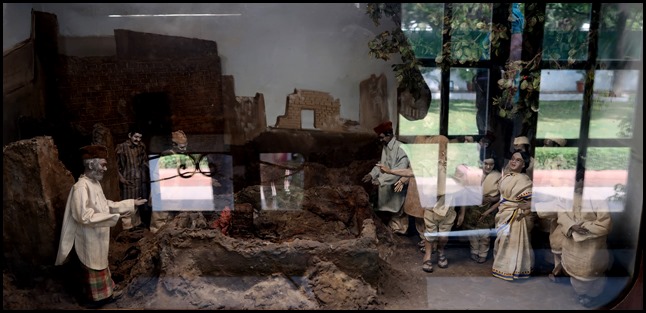 In Riot-Wrecked Bihar, 1947: Gandhi came to Patna to
comfort the victims of communal frenzy. He exhorted the Hindus and the Muslims
to live together in a filial spirit. He brought love where hatred and
cunningness had ruled.
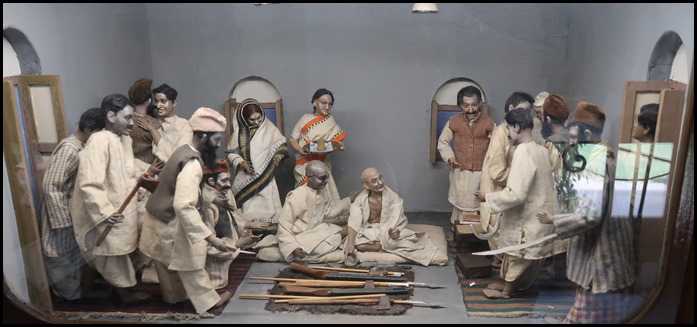 Fast for Communal Harmony, 1947: On September 1, Gandhi
began his fast to end communal frenzy in Calcutta. This caused deep
heart-searching in all concerned. The hooligans surrendered their weapons.
Gandhi broke his fast on the restoration of peace.
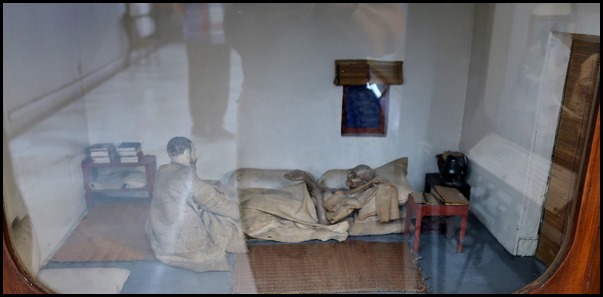 Gandhi and Gaffar Khan, 1947: The
impending division of the country was a deep source of agony to Gandhi and
Gaffar Khan. Gaffar took leave of Gandhi with a heavy heart and left for his
home town in Pakistan. They never met again.
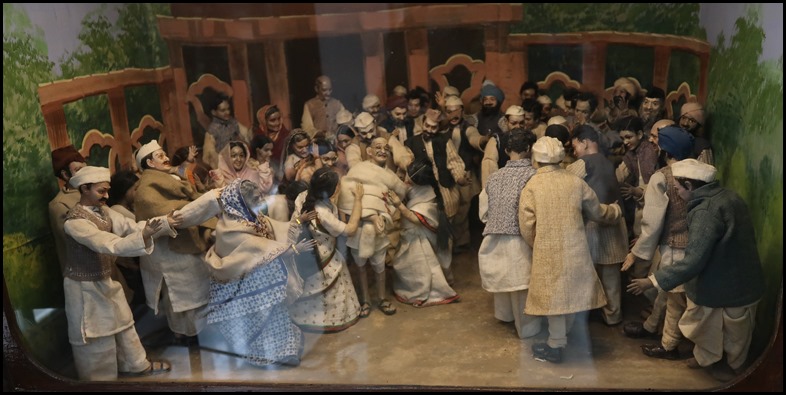 Martyrdom, 1948: On January 30 at
the sun-set-hour the perverse assassin of the ages lodged hot lead in the soft
flesh of Mohandas Karamchand Gandhi, his mind was concentrated on God and he
merged in him. He had said, “If I am to die by the bullet of a man I must do so
smiling.”
He was the glorious one in death
as in life.
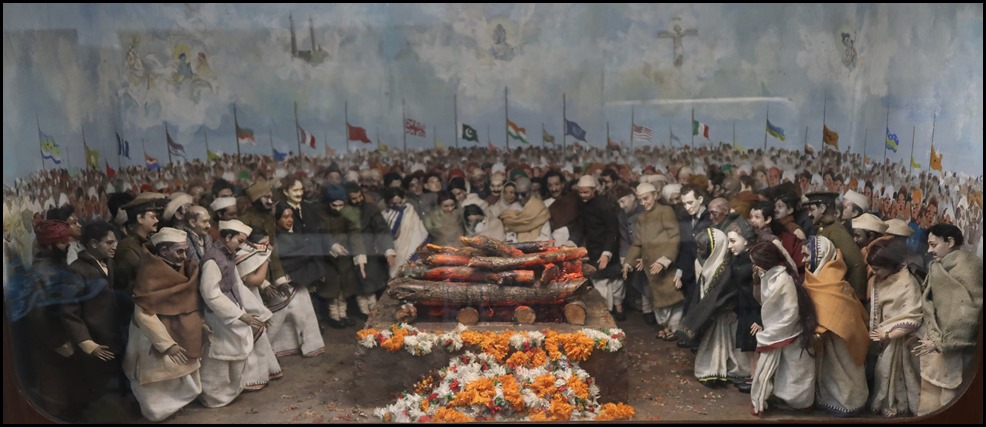 The World Bowed in Homage, 1948. On
January 31, Gandhi’s body was laid on a sandalwood pyre at Rajghat, Delhi. From
the pyre comes the message: Lead me from the unreal to the real. From darkness
to light. From death to immortal.
ALL IN ALL A GOOD POTTED LOOK
FASCINATING HISTORICAL
DISPLAY |
